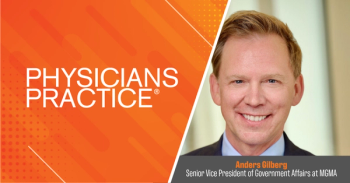
EKRA’s resurgence – Ninth Circuit opinion gives a boost
The Ninth Circuit's ruling on EKRA reshapes compliance for healthcare entities, emphasizing the importance of understanding kickback laws and their implications.
In February 2020, I wrote an article for
EKRA made it a federal crime to receive or offer “[i]llegal remuneration for referrals to recovery homes, clinical treatment facilities, and laboratories.” While EKRA limits the scope to these three types of entities, it includes private payers. Additionally, “laboratories” include physician-owned laboratories and extend to include all laboratories, not just those used in connection with the treatment of SUD patients. There are also safe harbors, some of which overlap with the Anti-kickback Statute of 1972 (AKS), which also prohibits kickbacks but applies to government payers exclusively and has a broader reach in terms of persons.”
The first enforcement action was an indictment out of the Eastern District of Kentucky for the “solicit[ation] [of] kickbacks from a toxicology laboratory in exchange for urine drug testing referrals, lied to law enforcement agents about the kickbacks she received, and then attempted to cover up the kickback by requesting the alteration of certain financial records.”
Fast forward to July 11, 2025 - United States v. Schena, Case No. 23-2989, Dkt. 67.1 (9th Cir.). The Ninth Circuit affirmed the criminal conviction of a laboratory operator for providing remuneration to marketing intermediaries in exchange for referrals. Why is it notable?
- First appellate court in the United States to interpret EKRA. The Ninth Circuit affirmed that the statute applies to private payers as well as Government Programs.
- Second, EKRA’s scope extends beyond referring medical professionals receiving payments. It also covers payments to third-parties who indirectly influence patient referrals.
- Lastly, depending on how a percentage-based compensation is structured, such an arrangement may implicate EKRA when tied to false or fraudulent efforts to induce referrals. In other words, substance over form.
Another notable item from this case is that EKRA has no requirement that the recipient of the remuneration directly interact with the patient. Stated another way, a “strawman” or “intermediary” facilitating the referrals in exchange for payment can also be culpable. In fact, the Ninth Circuit noted that it disagreed with the holding in S&G Hawaii, LLC v. Graves case where the district court interpreted EKRA as requiring patient interface.
So, what does this mean for persons that fall under EKRA’s umbrella (i.e., laboratories, clinical treatment facilities and recovery homes)? From a compliance standpoint, EKRA, the Anti-Kickback Statute (AKS) and Stark Law, as well as their respective safe harbors and exceptions need to be read in pari materia with each other. It is not adequate, for example, to meet the commission-based payments safe harbor under the AKS and not meet the EKRA safe harbor, which differs significantly. Additionally, considering the substance over form of any contract that could raise flags regarding referrals for remuneration is important. In sum, the Ninth Circuit’s opinion underscores that compliance programs should be evaluated and training should be emphasized.
Newsletter
Optimize your practice with the Physicians Practice newsletter, offering management pearls, leadership tips, and business strategies tailored for practice administrators and physicians of any specialty.






